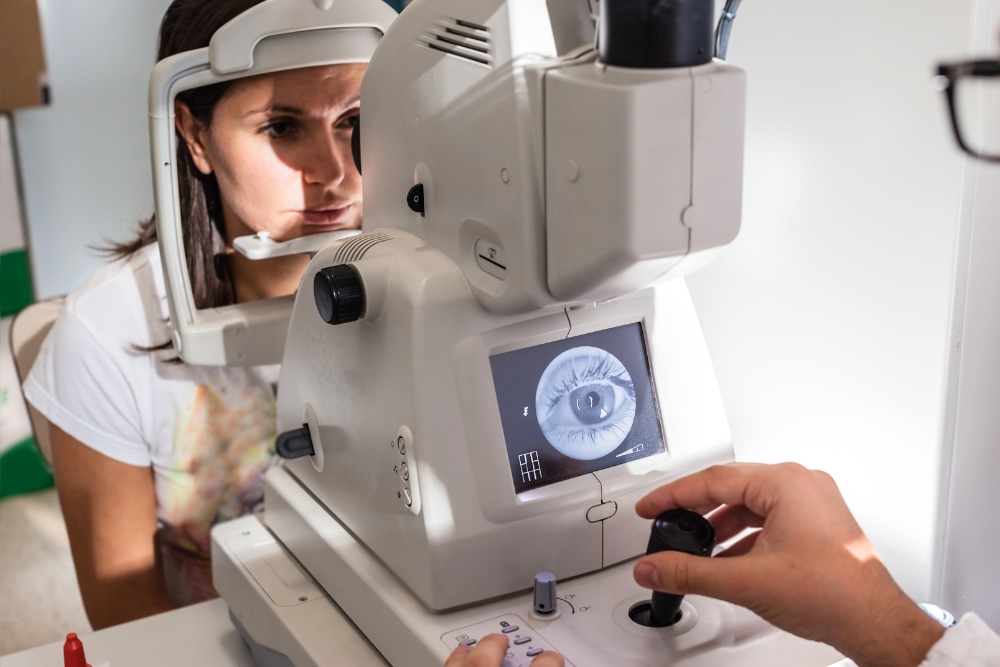-
When Should You See a Diabetes Doctor? Signs It’s Time for Expert Help
-


If you’ve been told you have “high sugar,” or you’ve been managing diabetes for a while now you might be wondering, “Do I really need to see a diabetes doctor?”
You’re not alone. Many people in the UAE try to manage diabetes on their own or rely only on general advice from friends, family, or the internet. But when it comes to a condition as complex and far-reaching as diabetes, specialized care matters.
Hi, I’m Dr. Kishore Kumar Katam, Diabetes & Endocrine Specialist at RAK Hospital.
Every day, I meet patients who have been living with high blood sugar for years sometimes without even knowing the damage it’s doing to their heart, kidneys, eyes, and nerves. Others are doing “all the right things” but still struggling to control their blood sugar levels. And many simply don’t know when it’s the right time to ask for expert help.
The truth is – a diabetes doctor (also known as an endocrinologist) does much more than prescribe medicines. We help you understand your body, tailor a treatment plan that works for you, and prevent long-term complications before they start.
You might wonder, “Can’t my general physician manage my diabetes?”
In some cases, yes especially in the early stages. But if your blood sugar isn’t stable, or you’re dealing with complications, symptoms, or other health conditions, it’s time to bring in a diabetes doctor (also known as an endocrinologist).
New medications like Ozempic and Mounjaro can be given to diabetic persons with BMI more than 27.9kg/m2, which causes weight loss and better glycemic control.
A diabetes specialist doesn’t just treat blood sugar they understand how diabetes affects your entire body. That includes your heart, kidneys, eyes, nerves, hormones, and even your mood.
Here’s what we focus on at RAK Hospital:
Many of our patients also come in with polycystic ovary syndrome (PCOS), obesity, or post-pregnancy sugar issues all of which are closely tied to insulin resistance and endocrine health.
If any of these sound familiar, it may be time to consult a specialist:
Even if your diabetes seems “under control,” regular check-ins with a diabetes doctor can help prevent long-term complications and keep you ahead of the curve.
Many people in the UAE live with diabetes for years without ever seeing a specialist. But ignoring warning signs or relying only on general care can increase your risk of long-term damage to your eyes, kidneys, nerves, heart, and more.
Here are 7 signs you shouldn’t ignore, they’re your body’s way of saying, “It’s time to see a diabetes doctor.”
If your sugar readings are still above target despite trying diet, exercise, or medication, it may be time to revisit your treatment plan. A diabetes specialist can help uncover hidden causes like insulin resistance or hormonal imbalances.
Feeling dizzy, shaky, sweaty, or suddenly tired? These can be signs of hypoglycemia, especially dangerous if they happen often. You may need medication adjustments or an insulin pump for better control.
Unexplained weight changes especially with high blood sugar could indicate your body isn’t processing glucose correctly. This is common in type 2 diabetes and thyroid disorders, both managed by endocrinologists.
Uncontrolled diabetes can affect your mental clarity, mood, and energy levels. It may also signal related issues like adrenal disorders, hormonal imbalance, or poor sleep linked to blood sugar spikes.
If you also have high blood pressure, heart disease, PCOS, or thyroid issues, managing them all together is key. A diabetes doctor can look at the bigger picture and tailor your treatment accordingly.
Gestational diabetes and pregnancy with type 1 or type 2 diabetes require close monitoring. A specialist ensures both mother and baby stay safe with proper medication, diet, and blood sugar tracking.
Blurry vision, tingling in hands/feet, or wounds that don’t heal well are all signs of diabetes complications. Getting help early can prevent permanent damage.
Diabetes doesn’t come alone. It’s often deeply connected to other health problems especially those involving your hormones, heart, and metabolism.
At RAK Hospital, we often tell patients:
“If you’re managing only your sugar levels, you might be missing half the picture.”
Here’s how diabetes is linked to other conditions and why seeing a diabetes specialist (endocrinologist) helps you manage the full story:
Your thyroid gland controls how your body uses energy. If it’s underactive (hypothyroidism) or overactive (hyperthyroidism), it can directly affect your blood sugar levels, weight, and mood.
People with type 1 diabetes are more likely to develop autoimmune thyroid problems, and type 2 diabetics often experience thyroid issues without knowing it.
Common symptoms like fatigue, weight gain, or irregular heartbeat may be caused by your thyroid, not just your sugar and that’s where a specialist makes the difference.
Diabetes is, at its core, a hormonal disorder it involves the way your body produces or uses insulin, a hormone that controls sugar in the blood.
But many patients also struggle with:
When left unaddressed, these issues make it harder to control diabetes and can lead to frustration, fatigue, and medication overload.
High blood sugar damages blood vessels over time making diabetics 2 to 4 times more likely to develop:
That’s why every diabetes treatment plan at RAK Hospital includes cardiac screening and lifestyle modification to protect your heart, not just your sugar.
Why This Matters
Many patients come to us thinking they “just” need diabetes treatment. But after full evaluation, we often discover:
At RAK Hospital, our diabetes care includes full endocrine and cardiac assessment, ensuring that no part of your health is overlooked.
No two people experience diabetes the same way. That’s why at RAK Hospital, we don’t just treat “high sugar.”
We treat you, your body, your lifestyle, your goals, and your risks.
Whether you’re newly diagnosed or have been managing diabetes for years, our team designs a personalized diabetes treatment plan that adapts as your needs evolve.
Here’s how we do it:
We begin with a detailed set of investigations to understand what’s happening beneath the surface:
This helps us identify if you have just diabetes or other endocrine disorders like thyroid, adrenal, or PCOS as well.
Our in-house diabetes educator and dietitian work closely with you to design:
We believe small, consistent lifestyle shifts often work better than drastic diets or restrictions.
For patients needing more intensive support, we offer:
Every treatment plan is reviewed regularly because your needs may change over time, and your care should too.
At RAK Hospital, you’re never alone in your diabetes journey. We offer:
Managing diabetes is a marathon not a sprint. We walk every step with you.
If you’ve been trying to manage your diabetes on your own or haven’t yet seen a specialist now is the time.
Diabetes isn’t just about sugar.
It’s about your heart, your hormones, your kidneys, your mood, your energy and your future.
At RAK Hospital, our diabetes and endocrinology team is here to:
Whether you’re newly diagnosed, struggling to stay in control, or facing symptoms that just don’t make sense we’re ready to help.
Schedule your consultation with a diabetes specialist at RAK Hospital today.
1. My sugar goes up and down a lot. Is that normal?
Answer: Not really. Big swings in blood sugar can be harmful over time even if your average looks okay. It means your body’s struggling to maintain balance. We may need to adjust your medication, meals, or activity levels for smoother control.
2. Can I reverse my diabetes completely?
Answer: In some early cases of type 2 diabetes, yes – it can be put into remission through weight loss, diet, and lifestyle changes. But even if it can’t be reversed, it can absolutely be controlled so you avoid complications and live a full, active life.
3. I feel fine… Do I really need to worry about high sugar?
Answer: Unfortunately, yes. Diabetes often damages organs silently like your kidneys, eyes, nerves, and heart. Just because you feel fine doesn’t mean the sugar isn’t doing harm. That’s why regular checkups are so important.
4. Do I have to stop eating rice or sweets forever?
Answer: Not at all. You don’t need to give up all your favorite foods. It’s about portion control, smart combinations, and timing. Our dieticians at RAK Hospital help you eat the foods you love in a way that supports your sugar goals.
5. Why am I gaining weight even though I eat less?
Answer: This could be due to insulin resistance, thyroid problems, or even stress-related hormone imbalance. A diabetes doctor looks beyond just food and helps figure out the real cause behind stubborn weight issues.
6. Do I have to go on insulin if my sugar stays high?
Answer: Not always. There are many non-insulin options available today. But if insulin is the best choice, it doesn’t mean you’ve failed, it just means your body needs more help. Modern insulin tools are easy and nearly painless.
7. Can diabetes affect my sleep or mood?
Answer: Yes, absolutely. High or low sugar can cause poor sleep, brain fog, anxiety, and mood swings. Hormones are deeply connected to both sugar levels and emotional well-being. Managing your diabetes often improves mental health too.
8. What’s the first step I should take right now?
Answer: Book a visit with a diabetes doctor who understands your full health picture not just sugar. At RAK Hospital, we do a complete check, explain everything clearly, and build a plan you can actually follow.













